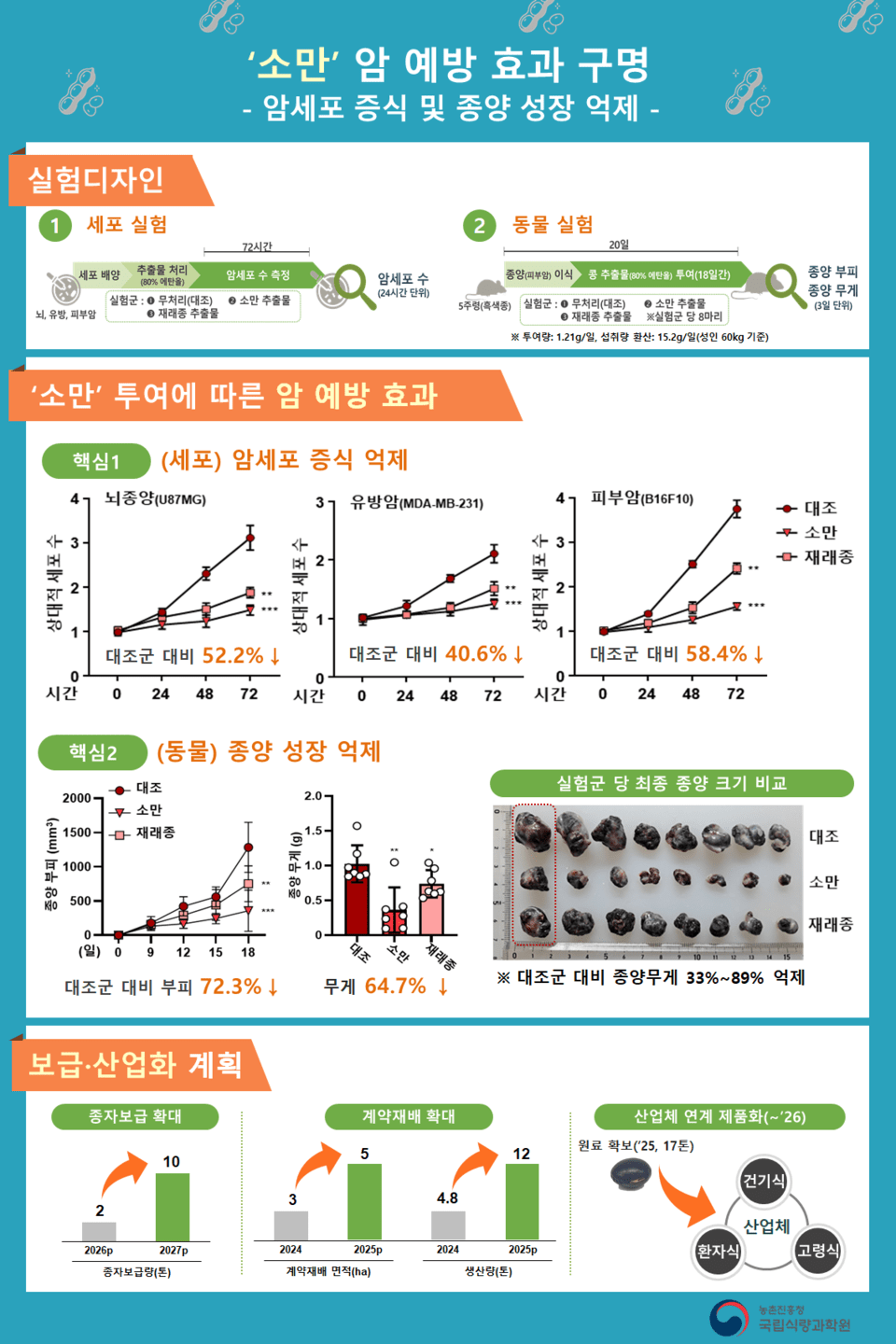The new black soybean variety ‘Soman’ developed by the Rural Development Administration has scientifically proven its superior antioxidant effect compared to existing varieties, demonstrating cancer prevention functions. ‘Soman’ is scheduled to be more widely distributed from next year, and public-private partnerships for the industrialization of functional foods are also being pursued.
Compared to traditional black soybeans, ‘Soman’ contains significantly more antioxidant substances, particularly with a 2.9 times higher content of isoflavone aglycone. The anthocyanin content is also 2.8 times higher than traditional varieties. Isoflavones are known for their cancer-preventive effects.

The Rural Development Administration, through joint research with Professor Jong-ho Lee’s team from Dong-A University, has proven the antioxidant efficacy of ‘Soman’. After treating brain tumor, breast cancer, and skin cancer cells with ‘Soman’ extracts, cell numbers were reduced by 52.2%, 40.6%, and 58.4%, respectively. Animal experiments also showed a 72.3% reduction in the size and a 64.7% decrease in the weight of skin cancer tumors.
‘Soman’ not only boasts antioxidant properties but also exhibits better yield and cultivation stability. The harvest yield is 13% higher than existing varieties, and it has dehiscence resistance, making it suitable for mechanical harvesting. Developed based on digital breeding technology, the variety maintains uniformity.
The Rural Development Administration has published these research results in the international journal “Antioxidants” and has applied for a patent on the related technology. The patent covers the composition for cancer prevention, improvement, or treatment, including ‘Soman’ as the active ingredient.
Currently, ‘Soman’ is being distributed in small packaging through some companies, and from next year, 2 tons of certified seeds will be supplied through the Korea Agricultural Technology Commercialization Foundation. The Rural Development Administration plans to secure 17 tons of raw grains this year to carry out industrial linkage demonstration projects.
Kwak Do-yeon, Director of the National Institute of Crop Science, stated, “As the functional properties of ‘Soman’ have been proven, we will strengthen collaboration with industries for its use in various fields such as health functional foods.” He added, “We will continue to develop functional varieties to create new demand for Korean soybeans.”
